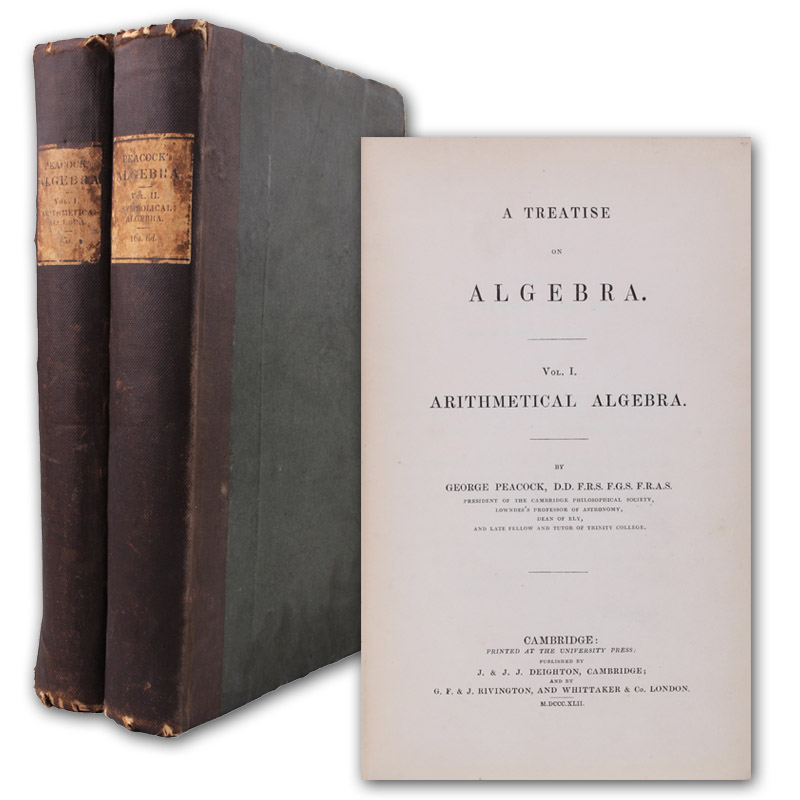112895-01
A Treatise on Algebra. 2 Bände.
Cambridge, Deighton, 1842-45. - (23 x 14 cm). (2) XVI, 399 S./ X, 455 S. Interims-Halbleinwandband, unbeschnitten.
Gegenüber der ersten Ausgabe von 1830 um 170 Seiten vermehrt. - "Peacock's mathematical work, although not extensive, is significant in the evolution of a concept of abstract algebra. In the textbook 'A Treatise on Algebra' (1830)... he attempted to put the theory of negative and complex numbers on a firm logical basis by dividing the field of algebra into arithmetical algebra and symbolic algebra. In the former the symbols represented positive integers; in the latter the domain of the symbols was extended by his principle of the permanence of equivalent forms. This principle asserts that rules in arithmetical algebra, which hold only when the values of the variables are restricted, remain valid when the restriction is removed. Although it was a step toward abstraction, Peacock's view was limited because he insisted that if the variables were properly chosen, any formula in symbolic algebra would yield a true formula in arithmetical algebra. Thus a noncommunicative algebra would not be possible" (DSB). - Mit zahlreichen Bleistiftanstreichungen und -anmerkungen. Einband stärker bestoßen. - DSB 10, 437
A Treatise on Algebra. 2 Bände.
Cambridge, Deighton, 1842-45. - (23 x 14 cm). (2) XVI, 399 S./ X, 455 S. Interims-Halbleinwandband, unbeschnitten.
Gegenüber der ersten Ausgabe von 1830 um 170 Seiten vermehrt. - "Peacock's mathematical work, although not extensive, is significant in the evolution of a concept of abstract algebra. In the textbook 'A Treatise on Algebra' (1830)... he attempted to put the theory of negative and complex numbers on a firm logical basis by dividing the field of algebra into arithmetical algebra and symbolic algebra. In the former the symbols represented positive integers; in the latter the domain of the symbols was extended by his principle of the permanence of equivalent forms. This principle asserts that rules in arithmetical algebra, which hold only when the values of the variables are restricted, remain valid when the restriction is removed. Although it was a step toward abstraction, Peacock's view was limited because he insisted that if the variables were properly chosen, any formula in symbolic algebra would yield a true formula in arithmetical algebra. Thus a noncommunicative algebra would not be possible" (DSB). - Mit zahlreichen Bleistiftanstreichungen und -anmerkungen. Einband stärker bestoßen. - DSB 10, 437
550 €

